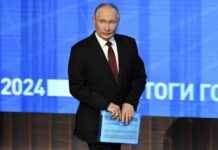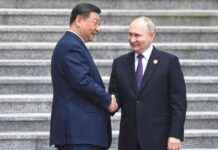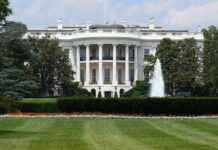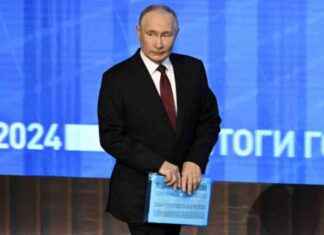Germany at a Crossroads: Decisions Ahead of Election
The recent decision by the German Bundestag to tighten the country’s migration policy has sent shockwaves throughout Europe. The approval of a non-binding motion to introduce permanent border controls, supported by the CDU/CSU faction and the AfD, has deepened existing rifts within the political landscape. As the country gears up for a crucial election, the implications of this move are being felt far beyond its borders.
The Center Stage: Failures and Fractures
Luxembourg’s Tageblatt has pointed out the failures of all democratic parties in addressing pivotal issues at the political center to prevent the rise of extremist factions. The inability to bridge these divides has created a space for radical ideologies to gain traction, putting the country’s stability at risk. The chancellor and the traffic light coalition have been criticized for their lack of action, allowing the current political discord to fester.
Austria’s Der Standard has expressed a lack of trust in Friedrich Merz, warning against forming a coalition with the AfD. The shifting political landscape and the wavering stances of key figures have left many questioning the integrity of leadership and the future of democratic principles. The echoes of past promises and commitments now ring hollow in the face of changing political tides.
Czechia’s Lidové noviny has criticized the marginalization of the AfD and highlighted the need for a more inclusive approach to political discourse. The utilization of the AfD as a political instrument rather than a pariah has sparked debates about the role of opposition parties in shaping policy. The unpredictability of German politics has raised concerns about the stability of the region and the potential repercussions for neighboring countries.
The Road Ahead: Challenges and Consequences
Poland’s Tygodnik Powszechny has raised concerns about the implications of Germany’s migration policy on border security and diplomatic relations. The influx of migrants and the enforcement of stricter controls could strain the delicate balance between nations, leading to potential conflicts and disputes. The upcoming election adds another layer of complexity, with the possibility of a fractured government unable to address critical issues effectively.
The Stuttgarter Zeitung has highlighted the lasting impact of the recent decision on Germany’s political landscape. The shift in power dynamics and the emboldening of far-right ideologies could reshape the country’s future trajectory. The implications of this momentous vote will shape the narrative of German politics for years to come, challenging existing norms and alliances.
Finding Common Ground: Pragmatism and Resolution
Tagesschau.de has called for a more pragmatic approach to policy-making, emphasizing the need for constructive dialogue and effective governance. The focus on what can be achieved rather than on perceived limitations is essential for restoring public trust in democratic institutions. The adaptability of EU laws and regulations underscores the importance of political will in shaping the future of governance.
Italy’s La Repubblica has lamented the departure from Germany’s historical stance on coalition building, signaling a shift towards more polarizing rhetoric. The influence of external factors, such as Elon Musk’s recent comments, has added another layer of complexity to the political discourse. The return to a more traditional asylum policy has been hailed as a step towards normalcy, but it has also raised questions about the ideological direction of the country.
The Final Warning: Lessons from History
Belgium’s Le Soir has issued a stark warning about the rise of far-right ideologies across Europe and the potential consequences of political alliances with extremist groups. The erosion of fundamental values and human rights in the face of rising xenophobia poses a significant threat to democratic principles. The lessons of history must not be forgotten as the country navigates turbulent political waters.
As Germany stands at a crossroads, the decisions made in the coming weeks will shape the future of the nation and its role in the global community. The need for unity, pragmatism, and a steadfast commitment to democratic values has never been more critical. The world watches as Germany grapples with its past, present, and future, seeking a path towards stability, inclusivity, and resilience.

















